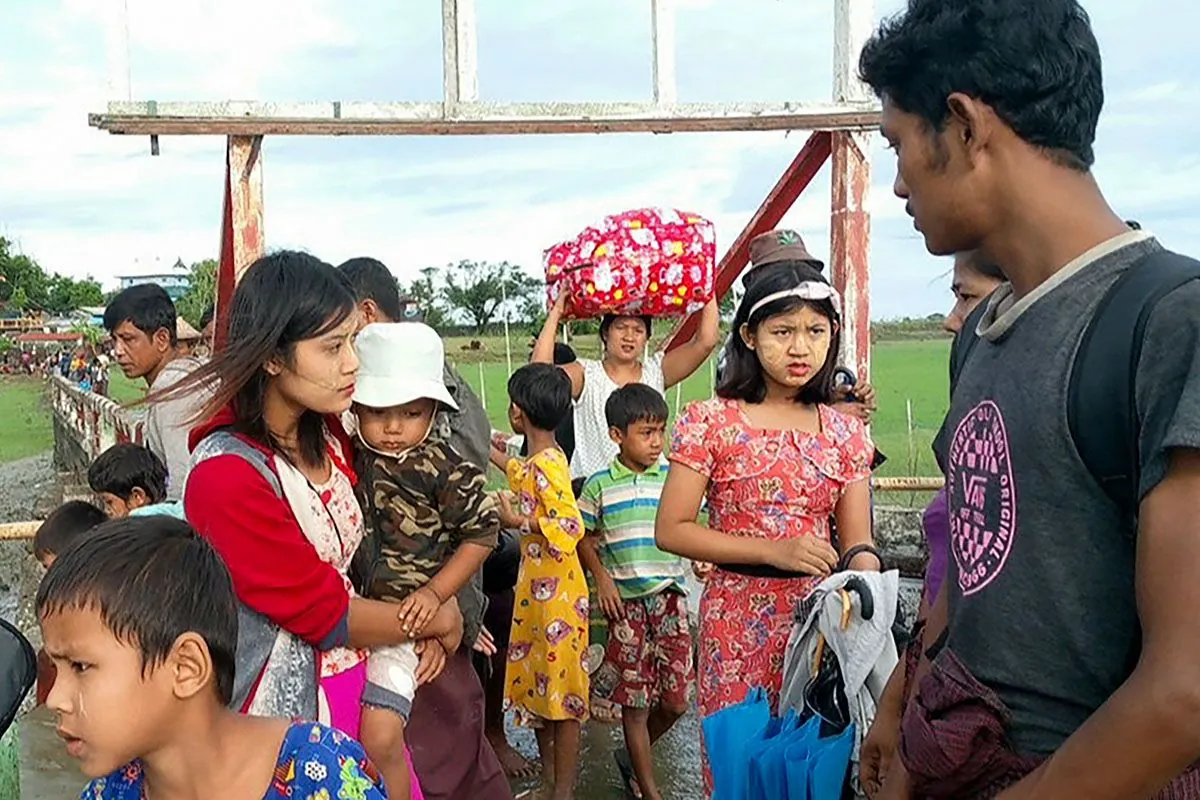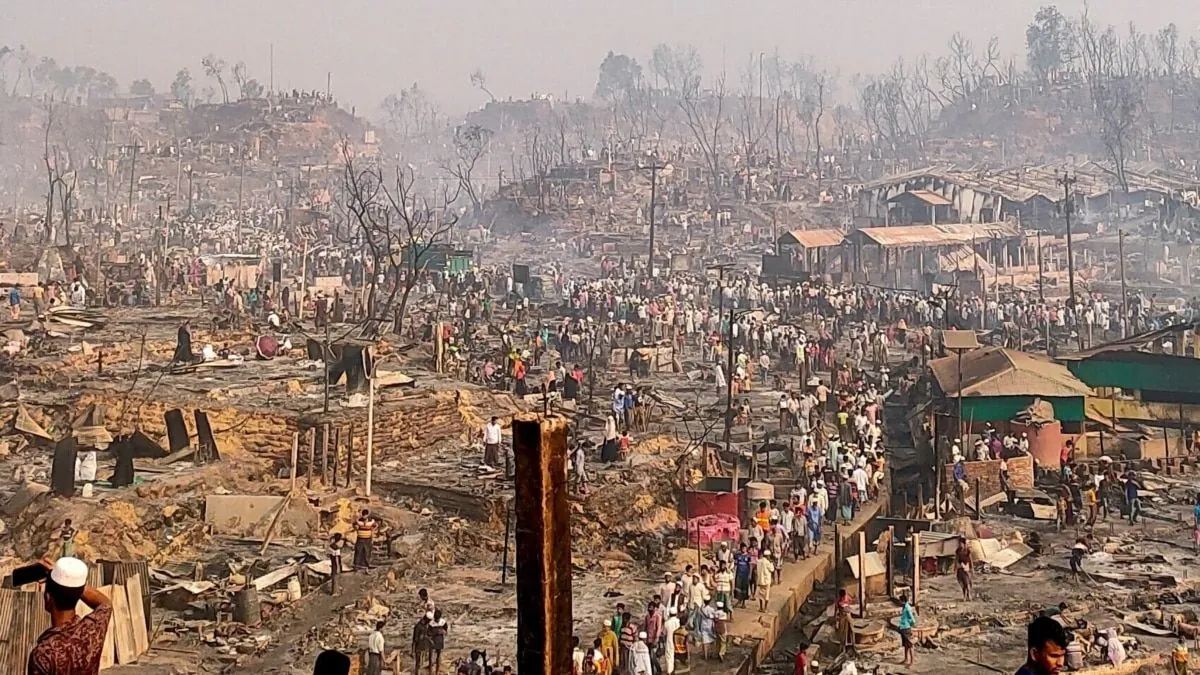Rohingya Rebels and Myanmar Military Find Common Foe in Arakan Army
Rohingya Solidarity Organisation claims "understanding" with Myanmar's military against Arakan Army. No formal agreement exists as both sides face a common enemy in western Myanmar's conflict.

In an unexpected turn of events, the Rohingya Solidarity Organisation (RSO) has reported an informal "understanding" with Myanmar's military, as both face a common adversary in the Arakan Army. This development marks a significant shift in the complex dynamics of western Myanmar's ongoing conflict.
Ko Ko Linn, head of RSO's political affairs, stated, "The junta did not attack us, and we did not attack them." He emphasized that this arrangement arose naturally due to the shared threat posed by the Arakan Army, which has been making substantial territorial gains in Rakhine State.
It's crucial to note that no formal agreement exists between the RSO and Myanmar's military. The two entities are not collaborating in their fight against the Arakan Army, with Ko Ko Linn asserting, "Our boys are fighting with our own uniform and our own badges, and we use our own guns."
This unexpected alignment comes against the backdrop of a long history of persecution faced by the Rohingya in Myanmar. The Rohingya, a Muslim ethnic minority primarily residing in Rakhine State, have endured decades of discrimination and statelessness. In 2017, a brutal military crackdown led to an exodus of over 700,000 Rohingya refugees to neighboring Bangladesh, creating the world's largest refugee camp in Cox's Bazar.

The RSO, formed in 1982 with the aim of establishing an autonomous region for the Rohingya, has experienced a resurgence since 2022. Ko Ko Linn reported that the group has expanded from around 1,000 cadres to between 5,000 and 6,000 members, though not all are armed.
Earlier this year, the RSO deployed approximately 1,000 fighters to Maungdaw, a town on the Bangladesh border, to defend Rohingya communities from the advancing Arakan Army. However, the group withdrew in early August 2024 following a deadly attack on civilians near the Naf River, which resulted in an estimated 180 casualties, including many women and children.
The conflict in Rakhine State is part of a broader rebellion against Myanmar's military junta, which seized power in a coup on February 1, 2021. The coup sparked nationwide protests that evolved into an armed uprising, further complicating the already volatile situation in the region.
"The situation of the Rohingya in Myanmar is a textbook example of ethnic cleansing."
As the conflict continues to evolve, the RSO is reassessing its strategy. Ko Ko Linn stated, "We are changing our strategy. We will go again inside to fight." However, he declined to provide specific details about their future plans.
The unexpected alignment between the RSO and Myanmar's military highlights the complex and shifting alliances in the region. As the situation develops, it remains to be seen how this "understanding" will impact the ongoing conflict and the future of the Rohingya people in Myanmar.


































